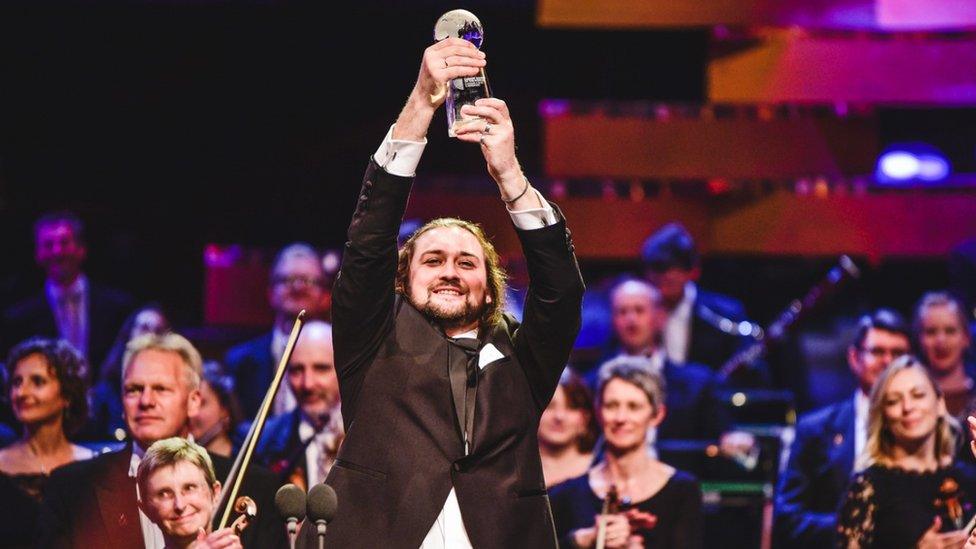Madam Butterfly: Swansea singer to star on stage
- Published
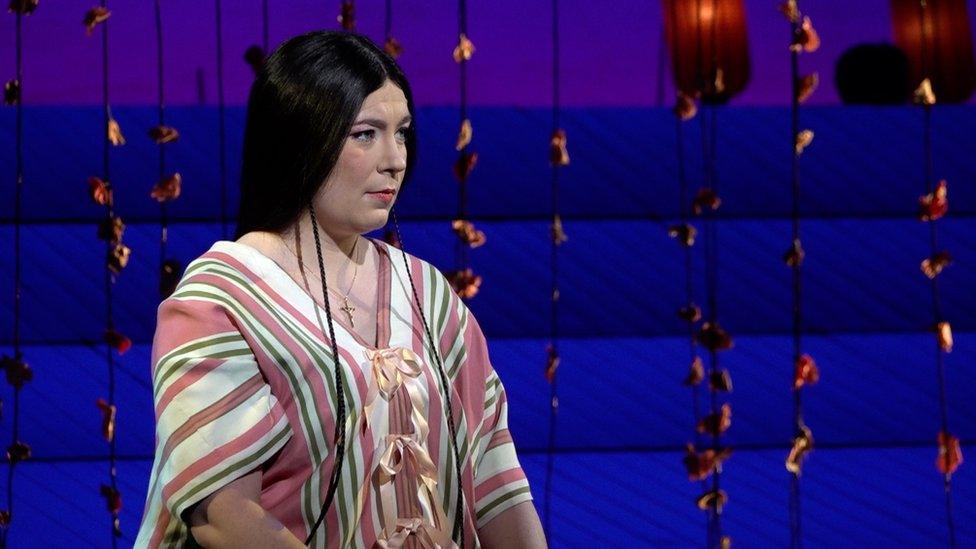
Natalya Romaniw will star as Madam Butterfly
A Welsh singer is set to take on the role of Madam Butterfly in an English National Opera production.
Natalya Romaniw, from Swansea, described it as a "huge honour" and a "box ticked" for her career.
The 32-year-old took part in the BBC's Cardiff Singer of the World competition in 2009.
She will play the part in the revival of Anthony Minghella's production, which includes some puppet characters alongside traditional opera singers.
Puccini's story of unrequited love includes one of opera's best-loved arias, Un Bel Di (One Fine Day), sung by Butterfly during the second act.
"I grew up singing Un Bel Die and hoping one day that I would get to sing it in my own right, and in the context of the opera," Romaniw said.
"It comes quite early on in act two, which is the biggest act for the soprano, and it is a moment where you just think 'box ticked'."
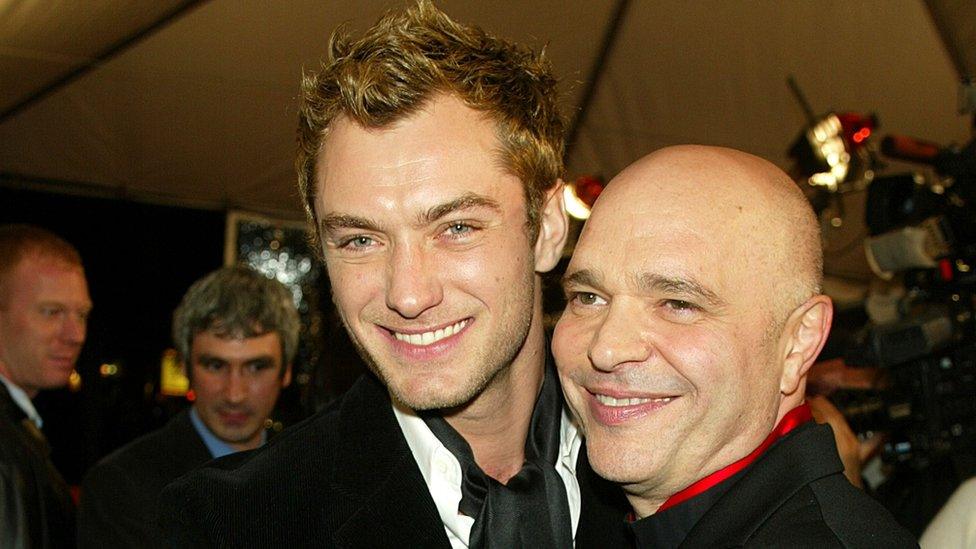
Anthony Minghella, a close friend of actor Jude Law, died in 2008. The Oscar-winning director is perhaps best known for film The English Patient
Her talents were nurtured at the Class Act Theatre School in Swansea before teacher Penny Ryan encouraged her to audition for major singing schools.
After gaining a place at the Guildhall School of Music and Drama in London.
Romaniw believes she would have had "a more realistic chance" at winning Singer of the World if she had not done it at such a young age.
However, she added: "The one thing I will say is that when I did do it, I didn't have any fear or any pressure on my shoulders. I just felt that I was invincible when I walked out."
Rehearsals for her debut as Madam Butterfly are entering their final days ahead of opening night, external next week at London's ENO Coliseum Theatre.
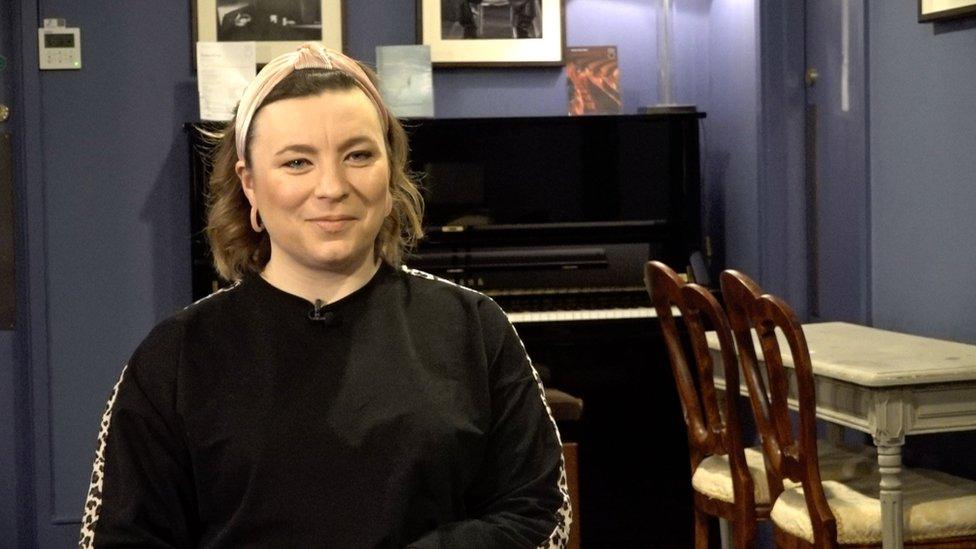
Natalya Romaniw's Ukrainian heritage has given her an affinity with eastern European music and she is releasing a CD of Russian and Czech songs in May
Butterfly's young son is often played by a child actor, but in this production he is represented by a model controlled by puppeteers.
"When I first saw him I thought 'this might be strange'," said Romaniw.
"But when you see the puppet move, it is very, very convincing. You just feel a huge empathy for him."
This performance of Madam Butterfly is in English, rather than the original Italian, and under-18s are given discounted tickets.
"I think opera is becoming more accessible. And hopefully we can crush those stereotypes and really show people what it is about," said Romaniw.
"I think the most common thing that I end up explaining is that we don't use microphones and there's this misbelief that you have to be a certain size in order to carry [your voice] over the orchestra.
"Actually we have to train extremely hard to create a technique that is supportive and not taxing, in order to be able to soar over these big orchestras."
- Published4 July 2017
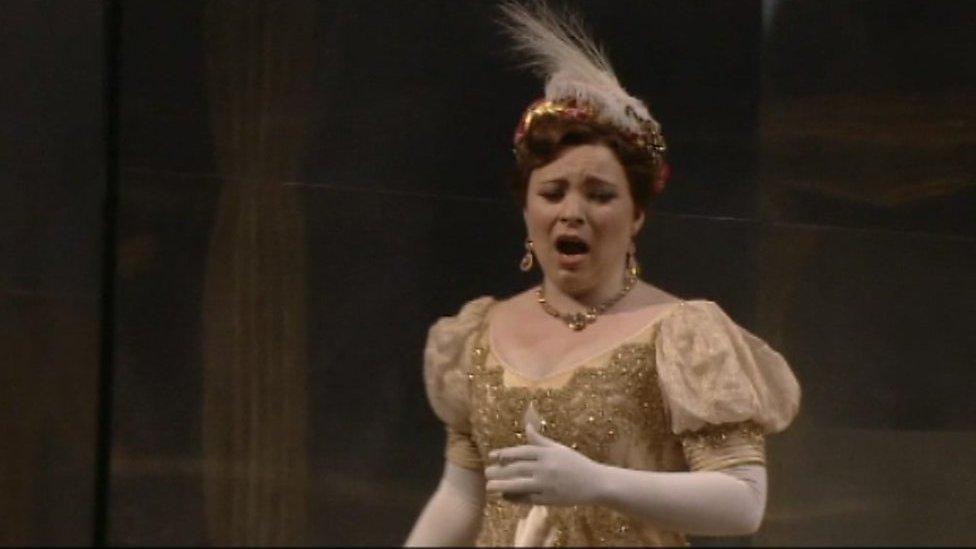
- Published2 March 2016

- Published15 September 2019
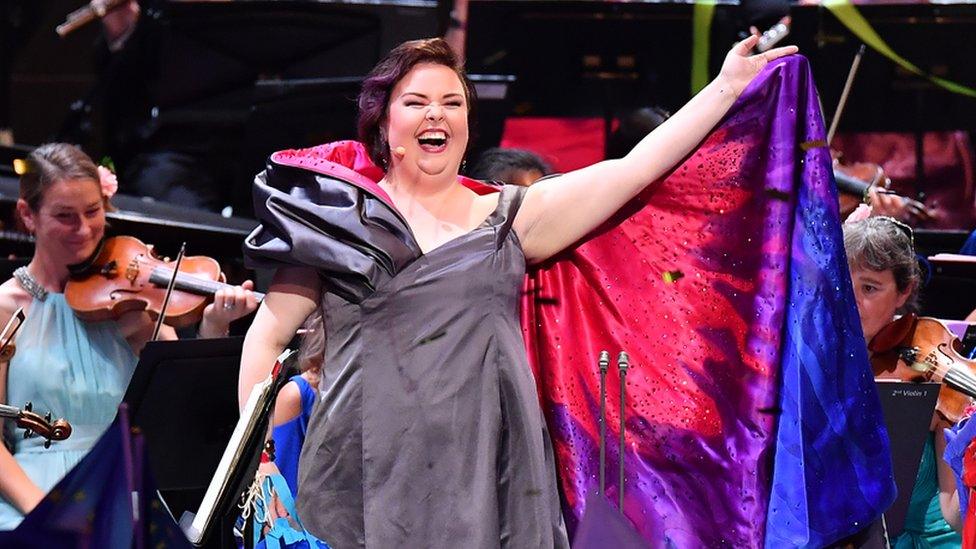
- Published22 June 2019
